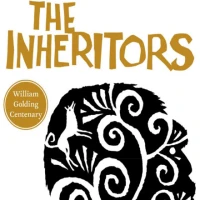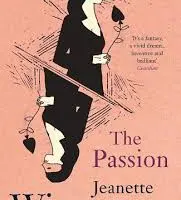It’s May, I know. I’m part of the UK Government’s Covid-19 response which means I’m working crazy hours. Blogging, including reading blogs, reading anything really, isn’t happening much right now.
March’s reading was prelapsarian. We went on holiday to Bangkok and on to Angkor Wat. We were out there two weeks as the news grew worse back home. When we came back it was straight into lockdown.
My March reading was almost all SF because I tend to buy SF on kindle and for a two week holiday my kindle was what I took. I read one book before we left, five while travelling and one in the two weeks after getting back. My April roundup post will be much briefer (two books). By the way, if you’ve no interest in SF you should still scroll down to the Donald E. Westlake because it’s huge fun.
Anyway, I hope everyone’s keeping well. Here’s what I read in March, back in a very different world.
Friends and Heroes, by Olivia Manning
This is the third of Manning’s Balkan trilogy, followed by her Levant Trilogy featuring the same core characters. I expect it to be one of my books of the year.
Guy and Harriet are now in Athens, as is Prince Yakimov (poor Yaki…) and several of their old associates from Bucharest. Guy and Harriet’s existence is now more precarious than ever before – they’re now part of the mass diaspora of people scattered across Europe fleeing before the chaos of the war.
Guy continues to be too unworldly for his own good, failing to see that just because he helped someone when they needed it doesn’t mean they’ll help him now that he does. Harriet continues to be the more practical, but at times she’s perhaps too cautious, and she can sometimes be too casual with the impact she has on others. It’s a brilliantly nuanced portrait of a marriage, all the better because Guy isn’t always wrong and Harriet not always right.
Manning doesn’t quite have Anthony Powell’s gift for making every minor character instantly recognisable. There were some who recurred from previous books who I could barely recall. The core cast though remains rock solid and Manning captures time, place and the internal and external strains on Guy and Harriet’s marriage perfectly.
I wrote about Manning’s The Great Fortune here. I didn’t write up the second, This Spoilt City, but I did refer to it briefly in my 2019 end of year post commenting that it was a “welcome return to Manning’s Balkan trilogy with some very impressive moments and lovely characterisation”.
Final thought. One of the benefits of series is the depth of characterisation they can achieve. At this point in the sequence Manning is able to explore nuances of Guy and Harriet’s characters, including times when they behave out of character. It’s possible because we already know them so well and would be much harder to pull off in a single book without them seeming inconsistent.
A Calculated Life, Anne Charnock
Anne Charnock is a British science fiction writer. A Calculated Life is about a young woman genetically engineered for desirable traits in a near-future Britain.
Effectively a slave, Jayna lives in a dormitory with others of her cohort. The company which engineers them leases them out as super-bright, super-reliable workers. The difficulty is Jayna’s generation have been tweaked for greater creativity and empathy, but the closer they come to ordinary emotions the harder they are to control.
Jayna decides she needs more data to carry out her work, which leads her out of her corporate bubble into the wider world. Outside a controlled environment her own controls start to slip. As so often in these stories, sex becomes a trigger for wider disobedience.
The idea of created beings becoming too human is hardly original. In fact, it’s an SF staple. Charnock delivers it well here though capturing Jayna’s inner life, the slow awakening of her peers, and the seemingly benevolent and very 21st Century corporate interest in their wellbeing and productivity.
Charnock also paints a depressingly plausible picture of a recognisable future Britain. A cognitive arms race has led to smart drugs and other enhancements keeping the well-off competitive, while an increasing proportion of the population is effectively written off as irrelevant. Sadly it’s all too credible.
Elysium Fire, Alastair Reynolds
We’re now solidly into holiday reading. Big screen SF set in a distant future with little connection to our real world (though the science is, as ever with Reynolds, pretty much rock solid).
Elysium Fire is set in a solar system dominated by a vast array of asteroid habitats known as the glitterbelt. Each asteroid contains its own society and is governed by its own rules. The only system-wide law is that citizens are free to choose which habitat they wish to live in and the rules that govern it. Police known as Prefects protect that fundamental right.
Reynolds previously wrote about this setting in his Aurora Rising, which I rather liked. The setting is great, but I was slightly less taken by Elysium Fire which has a less interesting threat for its heroes to contend with. If you like Reynolds it’s solid but not great.
Provenance, Ann Leckie
Provenance is a stand-alone novel set in the same universe as Leckie’s Ancillary trilogy. Again it’s star spanning distant future stuff. While the Ancillary series was big on action and intrigue, Provenance is closer to an Austenesque comedy.
In one not particularly important planet in Leckie’s future universe great store is set by vestiges – historical artefacts evidencing a connection to great people and events of the past. The most important families evidence their prestige through the quality of their vestiges, many relating to their own ancestors’ exploits.
All of which makes it slightly awkward when a young woman intent on proving herself to her own family discovers that many of her society’s most treasured vestiges may be counterfeit. Worse, some of the greatest families on her planet may rest their prestige on entirely forged historical treasures.
What follows is in one sense big action and intrigue, but with stakes that are a bit ludicrous. On its face it’s entirely serious, there’s a murder, hostage-taking, all sorts of dramatic events, but it’s also quite silly. I really rather liked it.
Brothers Keepers, Donald E. Westlake
Donald E. Westlake must have written some bad books at some point, but this wasn’t one of them.
Brother Benedict is a cloistered monk living with his brother monks in a small and not particularly noticeable monastery. His sins are small – taking a biro without permission, looking perhaps a little too long at a woman in a tv ad. His chief weekly pleasure is a trip out of the monastery to pick up the New York Times weekend edition.
Why the New York Times? Well, because unusually Brother Benedict’s monastery is located in the heart of Manhattan. It’s absolutely prime real estate, which is a problem when Brother Benedict reads in the Times’ architectural section that they’re due to be evicted so the site can be redeveloped.
One immediate difficulty is that the order Brother Benedict belongs to is “a contemplative Order, concerning ourselves with thoughts of God and Travel.”
Our meditations on Travel have so far produced the one firm conclusion that Travel should never be undertaken lightly, and only when absolutely necessary to the furthering of the glory of God among men—which means we rarely go anywhere.
Someone has to go out into the world to set things right. Who better than Brother Benedict who at least already goes to the local newsstand?
What follows is brilliantly funny. The brothers soon discover that when Manhattan real estate is at stake theft, fraud and all manner of villainy is rarely far behind. Can an unworldly group of monks defeat big capital? And can Brother Benedict reject the worldly temptations lying outside the monastery’s door?
I had not entered the monastery at age twenty-four completely inexperienced, but ten years is a long time, and now I stood before the concept of screwing the way a small child stands before the star-filled night sky, feeling its vast mystery and its close fascination in tiny tremors behind the knees.
This was an absolute delight of a read. It has a marvellous cast, lots of comic asides and set pieces, and it’s insanely quotable. Very highly recommended. I think I loved Somebody Owes Me Money slightly more, but this is still great.
By the Pricking of her Thumb, Adam Roberts
I’d enjoyed Roberts’ previous novel in this near-future crime series, The Real-Time Murders, which married a Holmes and Moriarty-style setup with a riff off Hitchcock movies. Here Roberts’ Holmes and Moriarty are back in the form of private investigator Alma and her bedbound lover Marguerite and the inspiration is Kubrick rather than Hitchcock.
This didn’t work for me, but whether that was the book or circumstances I don’t entirely know. I started it shortly before returning to the UK and lockdown. The news was worsening and a novel which has bereavement and grief as major themes wasn’t a great choice. For that reason I don’t think I can give it a fair review.
It’s cleverly constructed, the SF elements and crime elements combine well and Roberts takes a positive glee in setting up impossible crime scenarios which ultimately make sense by the rules of his world. Whether there was something lacking on this occasion in the chemistry I can’t say, but my guess is the fault on this occasion was in the stars rather than in the book.
Well, that’s a slightly depressing note to end on, but then that’s true of how March itself ended. While I didn’t quite take to the Reynolds or the Roberts this time, I did enjoy all the others (and I think I would have enjoyed the Roberts more had I chosen a better time in which to read it).
Hope you’re all keeping well and all going well I’ll see you on the other side, if not before (virtually anyway).


































